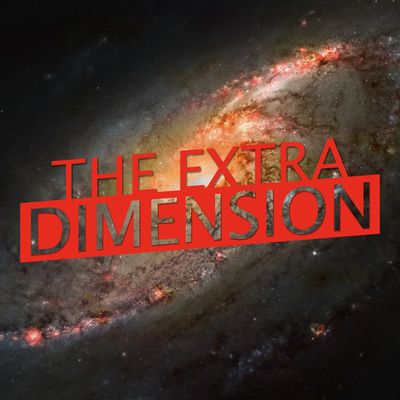The Extra Dimension #21: Distributed Social Networks
Almost all of the social networks that we use are centralized, meaning that one company owns everything. Ian, Brandon, and Brian explore what a social network would look like if it were distributed, meaning that there are many servers owned by different people that still communicate with each other.
Episode Summary
00:00:00 | Overview
- Distributed social network – Wikipedia
- A system where there are servers run by different entities, and users on the various servers can interact with each other
- Think of it like email, which is a distributed messaging system
- Different from a social media aggregator, which helps users manage accounts from several different social media platforms
- Comparison of software and protocols for distributed social networking – Wikipedia
- In theory, it helps bring control back to the users rather than a single corporate entity that owns the entire stack
- Much harder for oppressive regimes to block access, since content could be coming from any server
- Total service outages are much less likely, as content is spread among many servers
- If a particular server goes offline, users on other servers won’t see content from users on that server until it comes back; they will still see content from users on all other servers though
- Potentially more confusing for the user
- Some features are infeasible, like verified accounts (except with emoji hacks )
- Is adding new features harder, since each instance admin would have to update their server?
- Establish a base protocol, and then extra optional features that can be implemented in order to get more users? Maybe something like IMAP for email?
- Not really
- Email is ubiquitous because it has been around for forever, and back when email was created everything was distributed; now the norm is centralized services
- An email address is required to sign up for most other online accounts, and that won’t be the case for social networks
- GNU social
- Intended as an alternative to Twitter, so it shares many similarities
- Increases character limit to 500
- Privacy and harassment prevention were a focus from the start
- Individual posts have several levels of privacy you can choose from
- Blocking a user prevents anything from them from showing up, even if boosted by accounts you follow
- Content can be hidden behind a content warning, often used for spoilers, NSFW content, or trigger warnings
- Different instances can have different content rules
- The idea is that smaller communities can police themselves more effectively than a small team at a corporation
- Instances (servers)
- The administrator of a particular instance can choose whether or not it will be federated with other instances
- Some instances are set up as communities of their own around a particular theme
- Mastodon allows you to view a timeline of accounts you follow, accounts in your instance, or accounts from any federated instance
- Mastodon (software) – Wikipedia
- GNU Social compatible
- A beginner’s guide to Mastodon, the hot new open-source Twitter clone – The Verge
- Mastodon.social is an open-source Twitter competitor that’s growing like crazy – The Verge
- Welcome to Mastodon – Hacker Noon
- Learning from Twitter’s mistakes – Eugen Rochko – Medium
- What would Twitter be if it adopted Wikipedia’s politics? | openDemocracy
- Mastodon Bridge
- A tool for finding your Twitter followees on Mastodon
- Latest update on the status of Mastodon
April post-mortem – Eugen Rochko – Medium - BunsenLabs Linux
- Free Music Archive: The Zombie Dandies – Lo-Fi Hero
The Extra Dimension is released under a Creative Commons — Attribution 4.0 International license. Feel free to use any or all of it as long as you link back to https://thenexus.tv/ted21.
This episode of The Extra Dimension has a Fringe episode. You should really listen to The Fringe #425: TED #21 — Audacity Does!!
Listen to more at The Nexus and follow us on Twitter and Google+ for our latest episodes and news.
